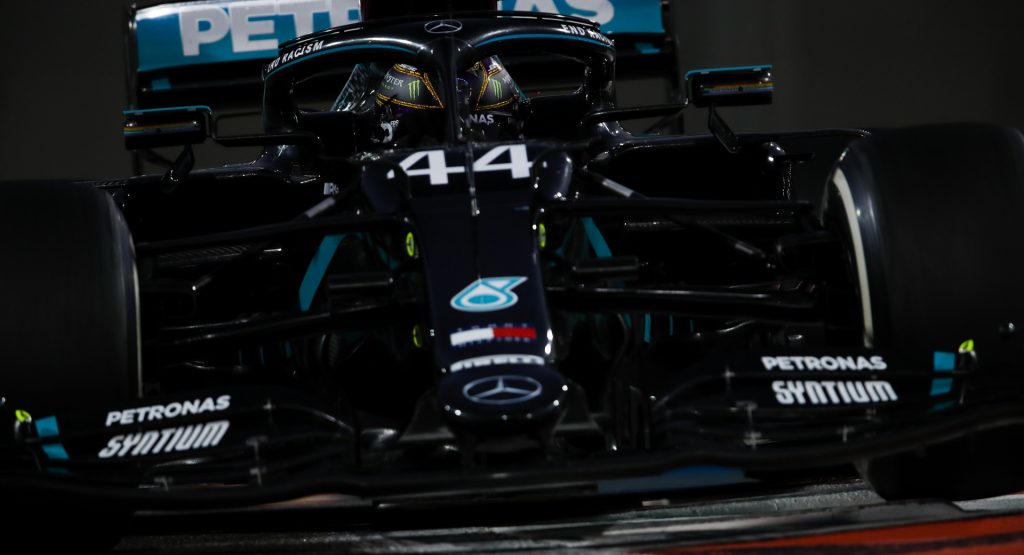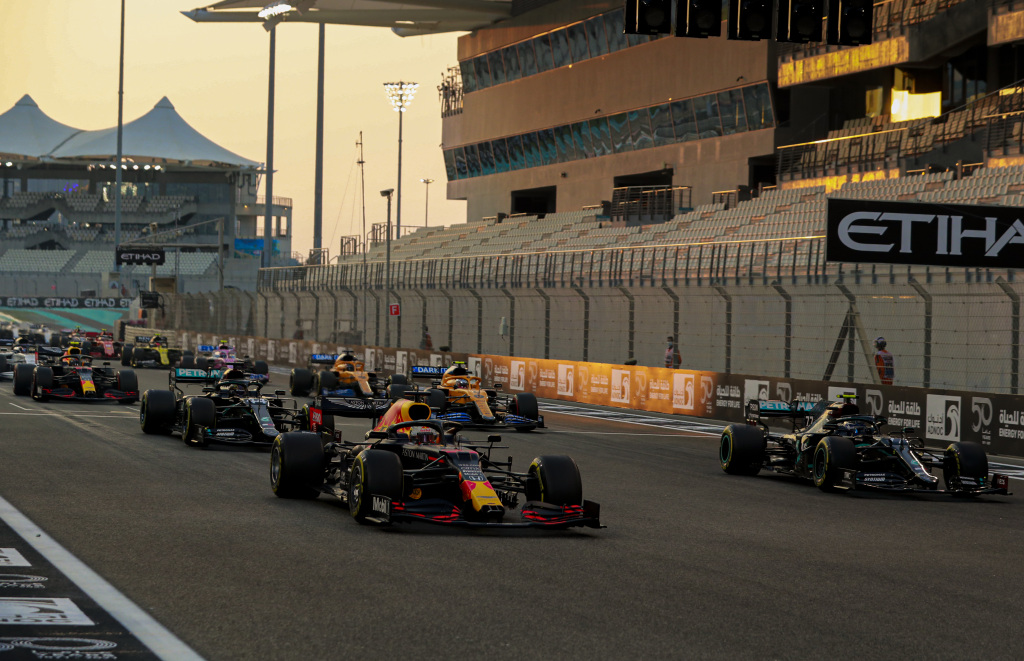Grand Prix racing has reached a watershed moment as the first barrels of so-called 100% sustainable fuel have been made and sent to F1’s engine teams.
The biofuel is produced using bio-waste, which is not intended for human or animal consumption. That, the FIA argues, makes it 100% sustainable and is part of a plan to help get motorsport carbon neutral.
The FIA won’t be making all of the biofuel forever, though. The barrels being sent out to engine manufacturers like Mercedes, Ferrari and Renault for testing and validation. The longer-term plan is for F1 suppliers to make their own fuel in the future.
Appreciating @F1 drivers strong commitment to #Environment. Many thanks to all of them. Today, @FIA and the entire motor sport and mobility family take a new step forward with an ambitious strategy: carbon neutrality from 2021 and net zero status by 2030. Watch the video: pic.twitter.com/ck8O6IZ6Cm
— Jean Todt (@JeanTodt) December 17, 2020
“Formula 1 has long served as a platform for introducing next-generation advancements in the automotive world,” said Ross Brawn, F1’s managing director of motorsports.
Also Read: 2021 Formula 1 Driver Lineup: Everything You Need To Know
“Our top sustainability priority now is building a roadmap for the hybrid engine that reduces emissions and has a real world benefit for road cars. We believe we have the opportunity to do that with a next-generation engine that combines hybrid technology with sustainable fuels.”
The fuel is part of a plan to make the sport carbon neutral by 2021 and net-zero carbon-wise in 2030. That plan was approved at the FIA’s Annual General Assembly this week.
Beyond the existential threat of climate change, finding a way to at least appear green will be crucial for Formula 1 from a business perspective. The sport will lose another engine supplier this year, as Honda will be leaving at the end of the season, and teams have increasingly been investing in Formula E, although BMW and Audi will be leaving the series after next year.
That sport has the twin benefits of being cheaper than F1 and of advertising automakers’ rapidly growing EV fleets. Formula 1 has already gained public support from Volkswagen’s CEO and Porsche has been talking about biofuels as a way of preserving classics into the future.
The trouble with biofuels, though, is that its applications in the real world are fairly niche and it remains expensive–both monetarily and environmentally–to produce.
Either way, Formula 1 hopes to have its biofuel racing by the time its new powertrains are introduced – a move that has been delayed by COVID-19, but which lately has been tipped for 2023.





